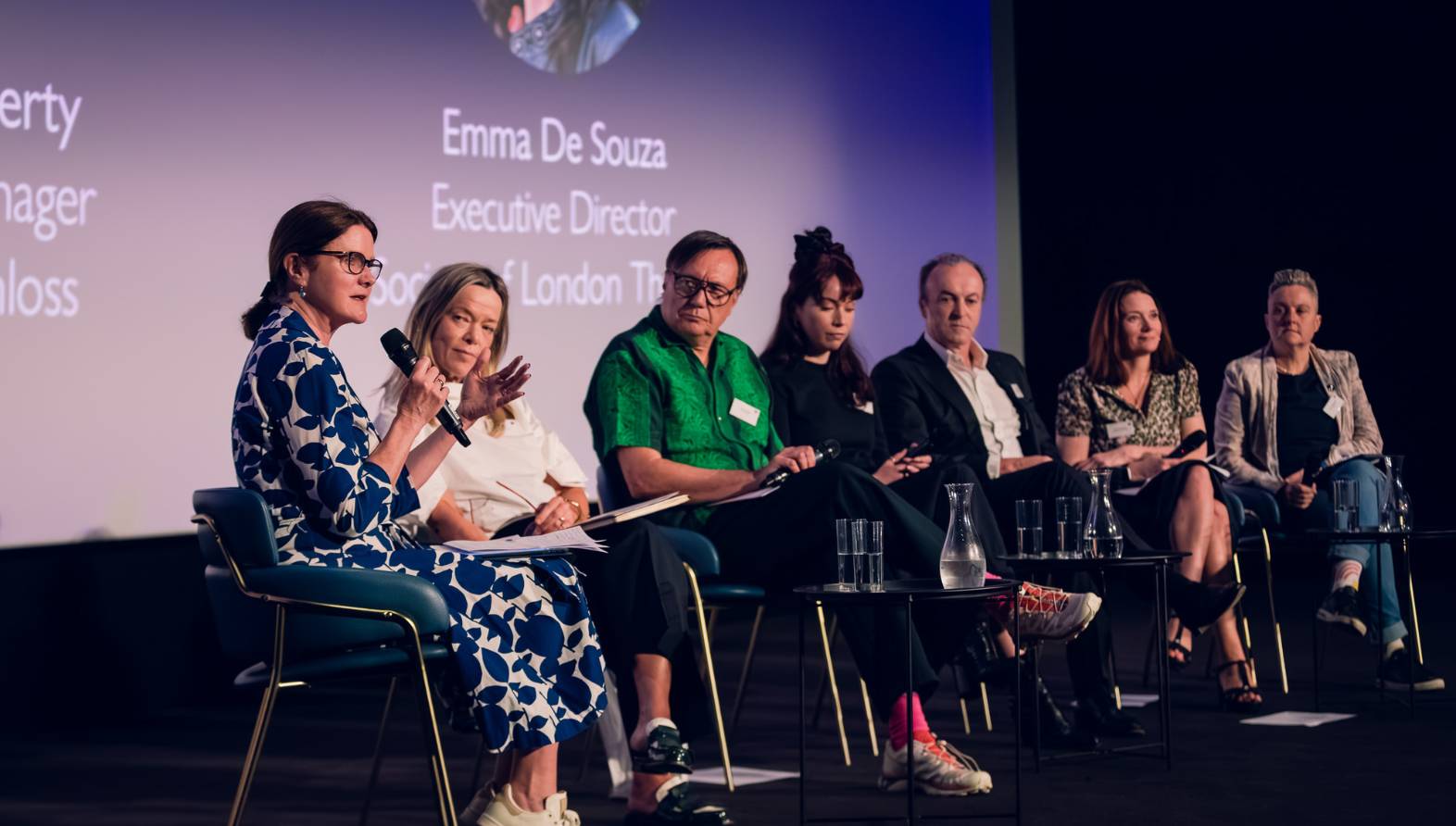
Future Talks: Calls for Reform, Investment and a Unified Vision to Support the West End’s 24-Hour Economy
The West End’s night-time economy is a cornerstone of London’s cultural and economic identity. Heart of London Business Alliances’ (HOLBA) latest findings reveal that while the sector generates £43.3BN for the UK’s economy, sadly 1,608 night-time businesses have been lost since 2020.
To realise the sector’s full potential, there is a growing need for policy reform, strategic investment, and an evidence-led vision. These themes were front and centre at HOLBA’s Future Talks: Where Next for the West End’s 24-Hour Economy?, where business owners, policymakers and industry voices gathered to chart a more ambitious, inclusive and sustainable course for the district’s after-dark offer.
Joined by:
Keynote speakers:
- Howard Dawber, Deputy Mayor for Business and Growth, Greater London Authority
- Cllr Geoff Barraclough, Cabinet Member for Planning and Economic development, Westminster City Council
Panel one:
- Kate Nicholls OBE, CEO, UKHospitality
- Jo Prosser, Director of Audience and Experiences, Royal Academy of Arts
- Cymon Eckel, Founder & Co-owner, Neon 194
- Roisin Finnerty, General Manager, Albert’s Schloss
- Simon Thomas, Executive Chairman, Hippodrome Casino
- Emma de Souza, Executive Director, SOLT
- Laura Willoughby, Founder, Club Soda
Panel two:
- Mark Williams, Deputy Chief Executive, HOLBA
- Kerry Simpkin, Head of Licensing, Place and Infrastructure, Policy & Projects. Westminster City Council (WCC)
- Paul Broadhurst, Manager, 24hr Team, Greater London Authority
- Cllr Iman Less, Deputy Cabinet Member, Westminster City Council
- Michael Kill, CEO, Night Time International Association
- Sylvia Oates, CEO, Six Till Six
Discussion summary
Across two panels, the discussion focused on how the West End can harness its cultural strengths to create a more inclusive, experience-led and sustainable night-time economy. A key theme throughout was the need for better data and more coordinated policy to guide long-term growth—highlighted by calls for improved safety infrastructure, greater support for independent venues, and urgent business rates reform.
What are the current standout successes of the West End’s 24-hour economy?
The West End’s theatre scene is thriving, with visitor numbers up 11% on pre-pandemic levels. This resurgence has been driven by fresh programming and the ability to attract new audiences, particularly younger demographics. However, sustaining this momentum will require action on several fronts, from ensuring safe late-night travel to supporting a more diverse, experience-led offer.
As theatre formats shift, with many performances now ending around 9pm, there is a growing opportunity to collaborate on post-theatre experiences. Local businesses such as bars, cafés, restaurants and cultural venues can play a central role in extending the evening, offering packages and promotions that invite audiences to stay longer and explore more.
How can collaboration and infrastructure support growth?
Partnerships with the Greater London Authority (GLA) and Westminster City Council (WCC), continue to play a crucial role in raising the West End’s profile. Events such as West End LIVE have proven the power of joined-up programming, combining theatre with late-night experiences and themed events.
To support continued growth, panellists called for further investment in the area’s infrastructure. From improved CCTV and lighting to safe and accessible transport after midnight, there is a need to make the West End more welcoming for both audiences and workers, particularly women and vulnerable groups.
Is mindful drinking the future of a diverse night-time offer?
The landscape of socialising is also changing, especially among (but not limited to) younger people. With 35% of under-35s now abstaining from alcohol altogether, the rise of alcohol-free options presents a clear opportunity for businesses. Venues like Mr Fogg’s and Cahoots were cited as already leading the way, with up to 40% of their drink menus alcohol-free. People are increasingly alternating between alcoholic and non-alcoholic drinks, reflecting a broader shift towards balance and moderation.
Customers are now seeking social experiences that extend beyond traditional drinking culture, whether that’s wellness clubs, themed nights, or late-opening dessert bars.
How can we support independent venues?
Despite opportunities, there are still significant barriers facing new and independent venues. High operating costs, prohibitive rents and business rates and restrictive planning and licensing policies often deter small operators. Calls were made for local and national government to explore measures such as rent-free periods, business rate reform and landlord-backed creative hubs – spaces that could offer a home to grassroots culture, fashion, food and more.
How can the visitor experience be improved?
Panel members raised operational concerns around waste management and public cleanliness, especially in high footfall areas where plastic waste remains an issue. Wildlife interference and street presentation are affecting perceptions of safety and quality.
More support is also needed for non-traditional night-time venues, such as dessert bars and late-opening cafés, to extend their hours and provide greater choice for visitors. These venues can help diversify the night-time economy and create a more rounded experience.
How should we be using data to shape policy?
Throughout the discussion speakers emphasised the need for better data collection to inform decision-making. From business turnover and footfall to perceptions of public safety and policing trends, real-time insight would allow the West End to measure the impact of policy interventions and adjust course when needed.
There was also a call to challenge long-standing cultural assumptions about the night-time economy. “We need to normalise the idea that a city can thrive and be active through the night,” said one speaker. “We have the infrastructure, now we need the vision.”
Why is business rates reform so urgent?
One of the most strongly voiced concerns was the need for business rates reform. Attendees criticised the current system as outdated, failing to reflect the realities of a modern, digital economy.
“The answer isn’t more levies—it’s a fairer, broader tax base” said Ros Morgan, Chief Executive, HOLBA. “We’ve been promised reform time and time again. It’s time for government to step up and deliver.”
Is it time for a unified growth plan for the West End?
With overlapping strategies from the GLA, Westminster City Council, and the Night-Time Taskforce, panellists, alongside HOLBA, concluded that it’s time to bring these efforts together into a single, evidence-based vision for the West End. A long-term growth plan, shaped by data and focused on experience, safety and sustainability, would ensure that the West End continues to lead as one of the world’s premier cultural districts.
Your Voice Matters: Westminster After Dark
Thank you to everyone who submitted questions during the event — your input is helping to shape our response to Westminster City Council’s Westminster After Dark consultation.
Want to have a bigger say? Join one of our upcoming roundtables and help influence the future of London’s evening and night-time economy.
Get involved: antonia@holba.london





